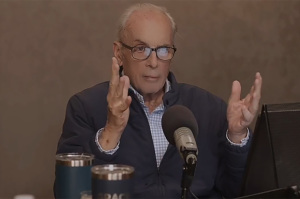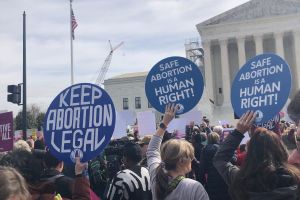Va. Judge Proposes Ten Commandments Be Cut to Six for School Display
A U.S. District Court in Roanoke, Va., presiding over a case in which a local school is fighting to keep its public display of the Ten Commandments, has suggested that the display be narrowed down to the last six commandments, which he believes can be applied to secular society.
Judge Michael F. Urbanski asserted that by narrowing down the list of laws given in the Old Testament of the Bible, Narrows High School's display would no longer be classified as a religious symbol, and therfore not violate the Constitution's guarantee of freedom from religion, Roanoke.com reported.
The debate over the display at Narrows High School began in 2010, when the Freedom From Religion Foundation accused the school board of violating the First Amendment's protection against government endorsement of religion by displaying the commandments. The American Civil Liberties Union of Virginia first filed a lawsuit on behalf of a student who complained about the Ten Commandments display.
"This action flies in the face of both strong legal precedents and our fundamental notions of what religious equality means in the United States," the ACLU expressed in a statement. "When the government promotes one faith, whether it is through the Ten Commandments or other religious documents, it automatically diminishes all other faiths."
But the Giles County School District, of which Narrows High School is part of, is being represented by the Liberty Counsel, a Christian nonprofit law group that is trying to prove that the presence of the display is entirely constitutional. Mathew Staver, who serves as dean of Liberty University School of Law and the chairman of the Liberty Counsel, has insisted that the full Ten Commandments are legally allowed to remain on school grounds, but accepted the ruling on mediation by Judge Urbanski.
"If indeed this issue is not about God, why wouldn't it make sense for Giles County to say, 'Let's go back and just post the bottom six?'" Urbanski asked during the motions hearing, according to Roanoke.com. "But if it's really about God, then they wouldn't be willing to do that."
"No date has been set on the mediation yet, but it will be later probably in June," Staver explained. "If there is [no] resolution, the court will have to make a ruling. Neither side had discussed mediation before today, so the judge for the first time recommended that it go to mediation before it goes to trial."
"The judge thought it would best for us to work together to make a compromise," Rebecca Glenberg, legal director of the ACLU of Virginia, told the Bluefield Daily Telegraph. "He thought it would be beneficial to both parties involved. We will discover if a compromise is possible during mediation. We made our arguments and the judge read everything and was very informed about the facts and laws of the case. The judge asked a lot of questions of both sides and ultimately ruled for us to mediate. If we are unable to reach a compromise then the judge will decide."
Both sides were reportedly expected to enter mediation in the coming weeks.





























